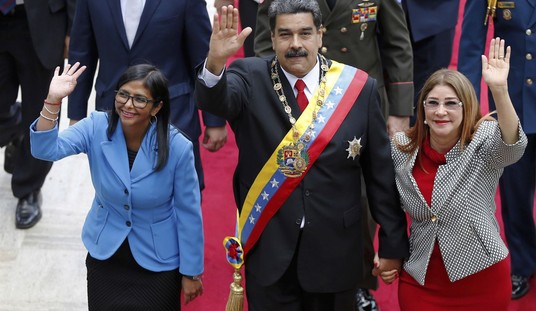At the time that the Jewish nationalist (Zionist) movement was founded, in the 1890s, there was already a significant Jewish population in what would become the modern state of Israel. Indeed, reasonably reliable census figures kept by the German Consulate in Jerusalem suggest that the Jewish population was a plurality of the whole, i.e. there were more Jews than there were either Muslims or Christians in the Ottoman provinces which would form the Mandate and then the state.
This population was largely, though not exclusively, centered on what were known as the Four Holy Cities of Jerusalem, Chevron, Tiberias, and Tzefath, as well as the then-commercial center of the region, Jaffa. There were also Jewish populations living peacefully in mixed communities with Muslims and Christians such as Haifa, Peqi’in, and Shfar’am, and around a dozen Jewish agricultural villages had been founded by groups backed with funding from abroad, some of which – such as Rechovoth, Rishon leTziyyon and Petach Tiqwa – would become substantial towns in later years.
Virtually all of these people were traditionally observant, Orthodox Jews.
With the establishment of the Mandate following the Great War and, with it, the establishment of the Zionists in a position of power, this traditional community came to feel itself increasingly under siege, to some extent with the connivance of the British, and their way of life threatened.
Some, such as members of the Rivlin and Diskin families, came under the influence of the Zionist ideology; others did not. The ones who did not, as well as some more recent arrivals, are the people known in the Israeli media as the Chareidim, often somewhat pejoratively called “Ultra-Orthodox” in English-language media.
After the UN voted for partition of the Mandate in 1947 the state became inevitable; members of this population were faced with a major question: Should they, or should they not, participate in the secular government about to be formed?
The question was put to one of the most eminent Jewish scholars of the day, Rabbi Refael Reuvain Grozovsky, then dean of Yeshivath Torah Vodaas in New York, and Rabbi Grozovsky rendered a tightly-reasoned opinion (subsequently published in his book Be‘ayoth haZeman) in which he reluctantly agreed that participation was the lesser of two evils. They might be able to deflect the worst of the decrees leveled at their community, and perhaps also be able to influence the government to the good.
The vast majority of the Chareidi community followed that ruling, under the leadership of the world Agudath Israel organizarion, which subsequently became a political party in Israel; a tiny minority, eventually coalescing under the name Neturei Karta (literally, “Guardians of the City”), centered in Jerusalem, did not.
Today, the Chareidi population are represented by two political parties, Shas and Yahaduth haTorah, and, with ample justification, they still feel themselves discriminated against and under siege.
The major issue in the news is the obligation to serve in the military. When the state was set up in 1948, David Ben-Gurion made a number of concessions to the traditional, religious community in hope of preserving the unity of the Jewish people; the one which is relevant here was the exemption of yeshiva students from military service, which he justified on the grounds that, generally, divinity students in any enlightened country are exempt from that country’s draft.
Ben-Gurion believed that his secular trend was the wave of the future, and that, eventually, the religious population would adapt or be converted. He was wrong, and the demographic trends in Israel prove it. As a result, the secular population, which has always held the trappings of power, now feel themselves threatened, and this explains many political developments in contemporary Israel.
By the 1990s, the draft question had become a major issue in Israeli politics, and in 1999, the so-called Tal Commission was formed, initially under the leadership of former Supreme Court Justice Tzvi Tal, to deal with it. On the commission’s recommendation, in 2002 the Knesset adopted what became known as the Tal Law, which continued the exemptions subject to certain stipulations, and was due to expire in five years, unless renewed (as it was).
Due to assertions by successive heads of the manpower branch of the IDF that the highly technological nature of modern warfare precluded any need for additional connon fodder in the military, the situation began to resolve itself. The rabbinical leaders of the Chareidi community began to relax a bit, and began to deal with a social issue which had been plaguing that community.
Simply put, not everybody is cut out to be full-time Torah scholar; as a result, there was a significant number of young men who had been brought up within that community, but who did not occupy themselves with the full-time Torah study which is the community’s hallmark. As they began to feel a bit less under siege, the Nachal Chareidi program came into being, and the Netach Yehuda battalion was formed, to which the rabbis began to direct such youths. Certain secularist demagogues seemed about to lose their bête noire and the wedge issue of Chareidi military service.
Enter Yair Lapid to change all that. The former television commentator who had made Chareidi-bashing his specialty formally entered politics in 2013 when he formed the Yesh Atid party. In the subsequent Knesset election, Yesh Atid, billing itelf as a “centrist” party, won an astonishing 19 eats in the Knesset, making it the second largest party at the time. Lapid adamantly insisted that he would not sit in a coalition with the Chareidi parties, and made an alliance with the fourth ranked Bayith Yehudi party (12 seats) that neither would enter the coalition without the other. The result was, for the first time since Menachem Begin’s historic upset in 1977, the Chareidi parties were out in the cold.
As bad, from their point of view, was the formation of a new Chareidi faction calling itself the Yerushalmi faction, under the leadership of Rabbi Shmuel Auerbach, who demanded that the law be repealed forthwith, and refused to cooperate with any party, to include both Chareidi parties, that acquiesced to it in any way. It is largely the members of this faction who have been making headlines with violent demonstrations.
At Lapid’s insistence as part of the coalitionary agreement, a law was passed in 2014 scrapping all previous precedent and requiring military service by yeshiva students without exception. The community felt betrayed, and massive demonstrations ensued against the law; the only silver lining to the cloud was the assertion of then-Defense Minister Moshe Ya’alon that he would not be in a hurry to implement the law, for the reasons already stated above.
Due in part to the intolerable strains caused by Lapid’s spectacular failure in the Finance Minister’s position, the coalition collapsed the following year, and fresh elections were held; the Yesh Atid delegation lost eight seats. The Yerushalmi faction’s non-participation in the election cost the Chareidi Yahaduth haTorah party at least one and possibly two seats in the Knesset; nonetheless, Benjamin Netanyahu invited the Chareidi parties back into the coalition; part of the price which they demanded was an amendment to the draft law reinstating the exemptions.
Being unable to win in the parliamentary process, the secularists followed the usual playbook and resorted to the courts. The Supreme Court has not disappointed them: As of last week, by an 8-to-1 vote, the Supreme Court declared the 2015 amendment to be “unconstitutional,” and ordered the Knesset to pass a new law (the bitter joke is that, as another concession to the religious population, who insisted that the only Israeli “constitution” could be the Torah, Israel does not have a formal constitution).
The political reaction has been immediate and swift. The Chareidi parties universally condemned it, and their position was summed up by Deputy Minister Meir Porush who said: “The Supreme Court’s judicial activism completely empties Knesset legislation of importance, turning it into a dead letter. Today’s decision just drives another stake into the coffin. The Supreme Court is eager for the apocalypse. For seventy years, the state has not had equality for the Chareidi community as opposed to the general public. The Chareidim know that they are discriminated against, and that that is the price of independence.”
On the other hand, the secularist Yesh Atid and Yisrael Beytenu parties (the latter is also a member of the current coalition) have both issued statements in support of the ruling.
Unles the Knesset can satisfy both the Supreme Court and the Chareidi public, and in short order, the coalition is doomed. Already, both the Yisrael Beytenu and Kulanu parties have come out in defense of the Supreme Court decision, and Yeh Atid’s Lapid is threatening street demonstrations if any attempt is made to circumvent the decision.
Meanwhile, HaBayit haYehudi, also upset with the Supreme Court over some other recent decisions, is acting, through proposed basic laws redefining the balance between democratic and Jewish principles in favor of Jewish principles, and also establishing a mechanism through which the Knesset can override the Supreme Court, similar to that in the United States.
The next Knesset session may be very short, but it will be very interesting. …









Join the conversation as a VIP Member